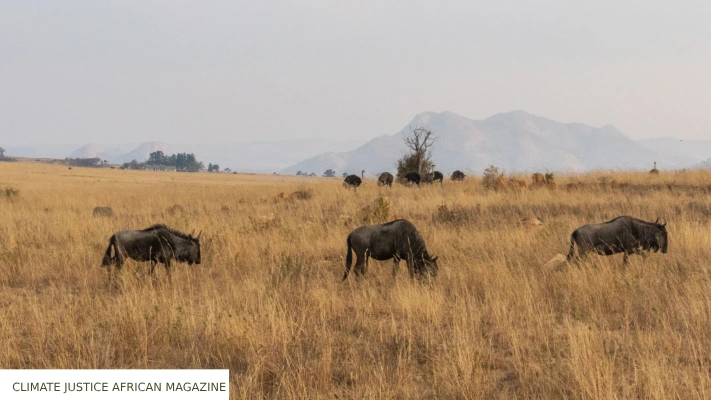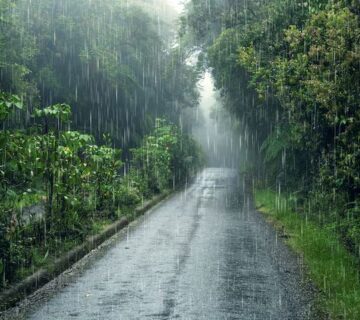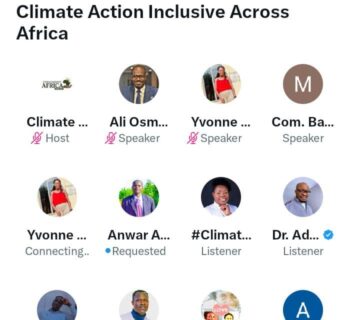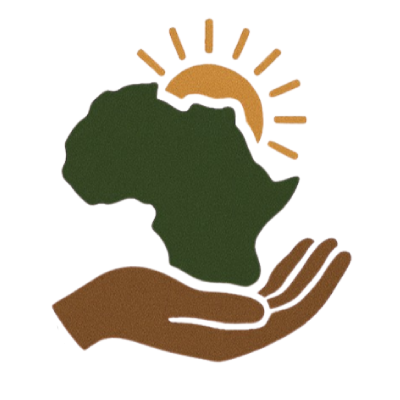Gabriel Lagrange – Director of the Geopolitics of the Environment Department / Institut d’Etudes de Géopolitique Appliquée (IEGA) – France
Among the 25 countries most vulnerable to climate change and fragility, Africa constitutes the largest group, with eight African nations appearing in both categories. As the dual threats of environmental stress and political instability converge, the climate–security nexus has emerged as a critical concern for Africa. The mounting implications of climate-related risks for peace and stability are gaining global attention, notably at the UN Security Council (UNSC). Yet, institutional progress has been slow since 2007, date of its first climate debate. The Russian-Chinese veto of a 2021 resolution attempting to link climate change to international peace and security illustrates how geopolitical divisions continue to obstruct global action.
Outside the UNSC, however, climate security has gained traction in international climate diplomacy. While not part of the formal COP agenda under the UNFCCC, it has made steady progress through presidency-led initiatives since COP26. Egypt’s launch of the “Climate Responses for Sustaining Peace” (CRSP) agenda at COP27 marked a turning point, positioning the climate–peace–development nexus as a political priority. This momentum was institutionalized at COP28 through the first-ever “Relief, Recovery and Peace” thematic day and the Dubai Declaration, endorsed by over 90 countries and emphasizing financial, operational, and collaborative responses to climate-related risks in fragile contexts. At COP29, the Baku Call for Climate Action, Peace, Aid and Recovery introduced the Baku Climate and Peace Action Hub, signaling growing political buy-in.
Despite this growing recognition, climate security remains absent from negotiated COP outcomes. Conflict-related language, present in earlier drafts of both COP28 Global Stocktake and COP29 New Collective Quantified Goal (NCQG), was ultimately removed as such sensitive language could derail fragile consensus, especially given the reluctance of states to politicize climate negotiations. This reveals a persistent disconnect: while political momentum for climate security is rising, it has yet to be institutionalized within the formal frameworks of international climate governance.
The Case for African Leadership on Climate Security
Africa is uniquely positioned to lead efforts to mainstream climate security at COP. Initially cautious in engaging with global climate diplomacy, due to climate change being marginal on domestic political agendas and perceived as neo-colonial, African states have since recalibrated their approach. As the continent increasingly experiences climate impacts, particularly in conflict-affected areas, climate has climbed the political agenda. Emerging narratives now emphasize agency and opportunity, not just vulnerability, allowing African actors to reclaim space and promote priorities rooted in lived experience.
Climate security dovetails with Africa’s broader advocacy at COP. The continent has contributed the least to global emissions yet faces disproportionate risks, exacerbating insecurity. Neglecting these risks compounds vulnerability and undermines progress on development and adaptation. Prioritizing it, by contrast, reinforces African calls for justice, resilience, and equity. As the Chair of the African Group of Negotiators (AGN) stated at COP29, “When Africa loses, the world loses… stability.” African states possess moral legitimacy and lived experience, powerful assets in framing climate security as a global concern.
However, moral authority may not always suffice in an increasingly transactional geopolitical environment. As Nazanine Moshiri, senior analyst at the International Crisis Group, notes, linking Africa’s fragility to broader global risks (e.g., displacement, regional instability, supply chain disruption) can help persuade reluctant donors. Climate security thus becomes not only a development imperative but also a diplomatic tool, one that enhances Africa’s soft power, shapes global norms, and shifts from policy recipient to norm entrepreneur.
Recognizing its strategic potential, African actors have launched initiatives beyond UNFCCC tracks. Most notable is the Common African Position (CAP) on Climate Security, currently developed by the African Union (AU) Peace and Security Council. This effort, informed by a multi-year consultative process and a continental assessment, seeks to unify messaging among African states. It complements other frameworks such as the AU’s Climate Change and Resilient Development Strategy and Action Plan (2022–2032) and regional initiatives like the Bamako Declaration on Climate, Peace and Security (2022), both of which explicitly reference climate security. African countries also played active roles within COP presidencies’ initiatives. Egypt championed CRSP at COP27; Uganda co-chaired the Baku Call at COP29; and 19 African states signed onto the COP28 Peace Declaration. Several countries participate in the Improved and Equitable Access Network, advocating for tailored finance in conflict-affected areas. These actions demonstrate a growing institutional capacity to champion climate security.
Challenges to Africa’s climate security leadership
Yet, Africa’s ability to advance this agenda faces persistent obstacles. The most pressing external barrier is the UNFCCC’s structure. The framework’s mandate, centered on climate mitigation, adaptation, and finance, offers little room for emerging cross-cutting themes like climate security. Agenda-setting requires consensus among all parties, an inherently conservative mechanism that privileges the status quo. Politically sensitive issues, particularly those intersecting with security, are often sidelined to avoid derailing fragile consensus. The removal of conflict-related language from the Global Stocktake and the NCQG exemplifies this constraint. Even as side events and political declarations acknowledge climate–conflict links, official texts remain silent. Many major powers, particularly Brazil, COP30 host, oppose framing climate as a security issue, arguing it lies within the remit of the UNSC, not the UNFCCC. Climate-vulnerable states and even African negotiators worry that introducing conflict could overcomplicate negotiations by politicizing them and trigger jurisdictional tensions with the UNSC.
Power asymmetries further constrain African influence. Developed countries dominate the COP agenda and negotiation architecture, relegating African states to reactive roles. One African negotiator noted, “Access to discussions, documents and decision-making spaces is often difficult for us. We are sometimes the last to know.” These inequalities are mirrored in climate finance. While needing $1.3 trillion annually by 2035, only $300 billion in global pledges were granted to developing countries under the NCQG at COP29, mostly in loans, with fragile states struggle to access even a fraction of these funds.
Internal constraints are equally significant. Despite rhetorical commitments, many African policies fail to meaningfully integrate climate–security linkages, a topic still “secondary and even instrumental at times, used when it helps advance other goals” according to Nazanine Moshiri. While Somalia’s latest National Determined Contribution (NDC) offers a strong example, most National Adaptation Plans (NAPs) and NDCs lack detailed climate security references. This is largely due to institutional silos: peacebuilding, development, and climate actors often operate in isolation, limiting cross-sectoral responses.
Implementation capacity remains limited. While multiple African frameworks mention climate security, few translate into actionable strategies. Political buy-in varies widely across the continent, and internal diversity complicates collective action. Africa includes fragile states, oil exporters, island nations, and middle-income countries, each with different priorities. These differences have delayed agreement on the CAP on climate security and fragmented the AGN. Conflict-free but vulnerable states often resist security framing, fearing it might reduce adaptation funding. Meanwhile, the countries most affected by climate–conflict dynamics are not always the most vocal in global forums. Overall, a true issue remains to define what vulnerability means for the continent and what should be prioritized.
Limited negotiating capacity further restricts impact. Many African delegations are under-resourced, sometimes just 6–10 delegates, limiting their ability to follow parallel negotiations, attend side events, or coordinate effectively. Climate security also suffers from a lack of technical expertise and institutional mandates. Negotiators are often drawn from environment ministries, with little input from defense or peacebuilding actors, leaving climate security outside their portfolio. As a result, it remains marginal within the AGN’s formal agenda.
What Africa Can Do at COP30?
Looking ahead to COP30 in Brazil next November, African negotiators have a timely opportunity to consolidate recent gains. Earlier this year, African ministers adopted a Common Position for COP30, reiterating priorities such as adaptation, finance, clean energy, and a just transition. To embed climate security as a recognized pillar, African states must act strategically on several fronts.
First, they must strengthen internal capacity and collaboration. Capacity-building programs, such as the AGNES sessions on climate security, can help develop technical expertise on climate–security risks and solutions. Delegations should include representatives from peacebuilding and security sectors, not just environmental ministries. The AU’s emerging CAP provides a valuable framework for institutional alignment. As Lamine Sidibe, Guinea’s climate negotiator, noted: “African negotiators can only align themselves with the AU guidelines on climate security, especially if this framework results from a continental consensus.”. More work should be done in adding climate security in security and climate strategies, (e.g., in NAPs or NDCs)
Second, Africa should strengthen its coalition-building by forging alliances with like-minded states and blocs to elevate climate security from the margins of side events to negotiation rooms. The G77 or LDC Group provide avenues for coordinated vulnerability advocacy. The Improved and Equitable Access Network already models this cross-regional cooperation.
Third, negotiators must mainstream climate security into COP finance negotiations. Fragile states remain among the most underfunded, despite facing the gravest risks. African states should advocate for conflict-sensitive finance mechanisms, vulnerability-weighted criteria, and accessible instruments under the Global Goal on Adaptation and the Baku-to-Belém roadmap. Framing resilience, peace, energy transition and development as mutually reinforcing rather than competing priorities could shift the narrative.
Finally, Africa could push for institutional innovation. Establishing a climate security working group within the UNFCCC would formalize space for this theme and facilitate its gradual integration into official texts.
Despite enduring challenges, climate security is a strategic opportunity for Africa. As Alphonse Muia, Director Environment Science for Partnership for Change, observed, “Many African actors are working under the mindset of ‘don’t waste a good crisis.’” Climate change is not only a threat but also a catalyst for attention, funding, and reform. COP30 offers a critical juncture: a chance to turn rising political momentum into institutional traction, if African states can align internally and engage globally. As Lamine Sidibe concluded, “I am rather optimistic. Not only should COP30 be perceived with hope, but if we keep moving forward as we are today, within two or three years, climate security could be recognized as its own negotiation subject, with concrete projects and dedicated discussions at COP.” The time for Africa to lead is now.






No comment